Filter by
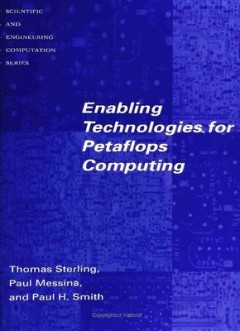
Enabling Technologies for Petaflops Computing
Building a computer ten times more powerful than all the networked computing capability in the United States is the subject of this book by leading figures in the high performance computing community. It summarizes the near-term initiatives, including the technical and policy agendas for what could be a twenty-year effort to build a petaFLOP scale computer. (A FLOP -- Floating Point OPeration -…
- Edition
- -
- ISBN/ISSN
- 9780262287074
- Collation
- 1 online resource (x, 178, [1] pages) :illustrations.
- Series Title
- -
- Call Number
- -
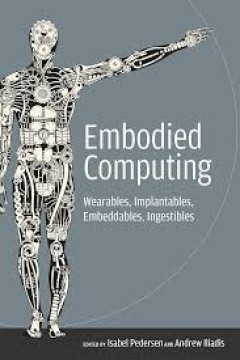
Embodied computing :wearables, implantables, embeddables, ingestibles
"Embodied technologies such as wearable tracking bracelets, ingestible sensors, embeddable prosthetics, and implantable microchips all stand to redefine the human experience and what it means to speak of technology and the body. No longer the speculative stuff of science fiction, embodied technologies have arrived and are being developed by a variety of industries at an alarming rate. Embodied …
- Edition
- -
- ISBN/ISSN
- 0262357798
- Collation
- 1 online resource.
- Series Title
- -
- Call Number
- -
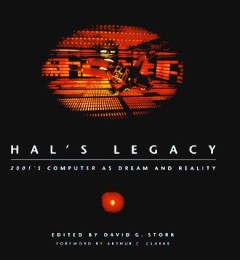
HAL's legacy : 2001's computer as dream and reality
I became operational... in Urbana, Illinois, on January 12, 1997. Inspired by HAL's self-proclaimed birth date, HAL's Legacy reflects upon science fiction's most famous computer and explores the relationship between science fantasy and technological fact. The informative, nontechnical chapters written especially for this book describe many of the areas of computer science critical to the des…
- Edition
- -
- ISBN/ISSN
- 9780262284455
- Collation
- 1 online resource (xxi, 384 pages) : illustrations (some color)
- Series Title
- -
- Call Number
- 001 HAL
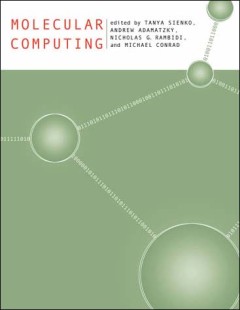
Molecular computing
The next great change in computer science and information technology will come from mimicking the techniques by which biological organisms process information. To do this computer scientists must draw on expertise in subjects not usually associated with their field, including organic chemistry, molecular biology, bioengineering, and smart materials. This book provides an introduction to the int…
- Edition
- -
- ISBN/ISSN
- 9780262283632
- Collation
- 1 online resource (xvii, 257 pages) :illustrations
- Series Title
- -
- Call Number
- -
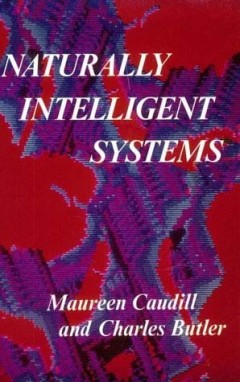
Naturally intelligent systems
For centuries, people have been fascinated by the possibility of building an artificial system that behaves intelligently. Now there is a new entry in this arena - neural networks. Naturally Intelligent Systems offers a comprehensive introduction to these exciting systems. It provides a technically accurate, yet down-to-earth discussion of neural networks, clearly explaining the underlying conc…
- Edition
- -
- ISBN/ISSN
- 0585023476
- Collation
- 1 online resource (304 pages) :illustrations
- Series Title
- -
- Call Number
- -
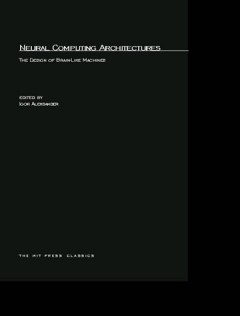
Neural computing architectures :the design of brain-like machines
"McClelland and Rumelhart's Parallel Distributed Processing was the first book to present a definitive account of the newly revived connectionist/neural net paradigm for artificial intelligence and cognitive science. While Neural Computing Architectures addresses the same issues, there is little overlap in the research it reports. These 18 contributions provide a timely and informative overview…
- Edition
- 1st MIT Press ed.
- ISBN/ISSN
- 0262255596
- Collation
- 1 online resource (401 pages) :illustrations
- Series Title
- -
- Call Number
- -
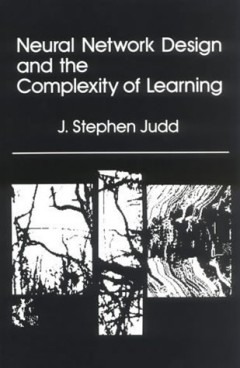
Neural network design and the complexity of learning
"A Bradford book.""Using the tools of complexity theory, Stephen Judd develops a formal description of associative learning in connectionist networks. He rigorously exposes the computational difficulties in training neural networks and explores how certain design principles will or will not make the problems easier. Judd looks beyond the scope of any one particular learning rule, at a level abo…
- Edition
- -
- ISBN/ISSN
- 0585359342
- Collation
- 1 online resource (150 pages) :illustrations.
- Series Title
- -
- Call Number
- -
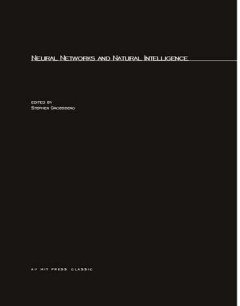
Neural networks and natural intelligence
"A Bradford book."Stephen Grossberg and his colleagues at Boston University's Center for Adaptive Systems are producing some of the most exciting research in the neural network approach to making computers "think." Packed with real-time computer simulations and rigorous demonstrations of these phenomena, this book includes results on vision, speech, cognitive information processing; adaptive pa…
- Edition
- -
- ISBN/ISSN
- 9780262315937
- Collation
- 1 online resource (xi, 637 pages) :illustrations
- Series Title
- -
- Call Number
- -
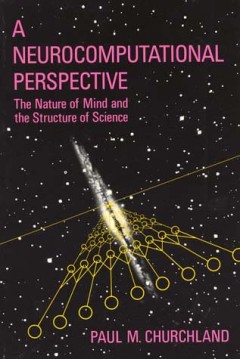
A neurocomputational perspective :the nature of mind and the structure of sci…
If we are to solve the central problems in the philosophy of science, Paul Churchland argues, we must draw heavily on the resources of the emerging sciences of the mind-brain. A Neurocomputationial Perspective illustrates the fertility of the concepts and data drawn from the study of the brain and of artificial networks that model the brain. These concepts bring unexpected coherence to scattere…
- Edition
- -
- ISBN/ISSN
- 9780262270328
- Collation
- 1 online resource (xvii, 321 pages) :illustrations
- Series Title
- -
- Call Number
- -

Using Computers: The Human Factors of Information Systems
A Bradford book.""Industry veteran Raymond Nickerson provides an extensive introduction to the information technology revolution that is transforming industrial society. He focuses particularly on the study of person-computer interaction, noting how computers are affecting their users and society as a whole, and describes a variety of ways in which information technology is expected to develop …
- Edition
- -
- ISBN/ISSN
- 9780262256711
- Collation
- 1 online resource (xiv, 434 pages) :illustrations
- Series Title
- -
- Call Number
- -
 Computer Science, Information & General Works
Computer Science, Information & General Works  Philosophy & Psychology
Philosophy & Psychology  Religion
Religion  Social Sciences
Social Sciences  Language
Language  Pure Science
Pure Science  Applied Sciences
Applied Sciences  Art & Recreation
Art & Recreation  Literature
Literature  History & Geography
History & Geography